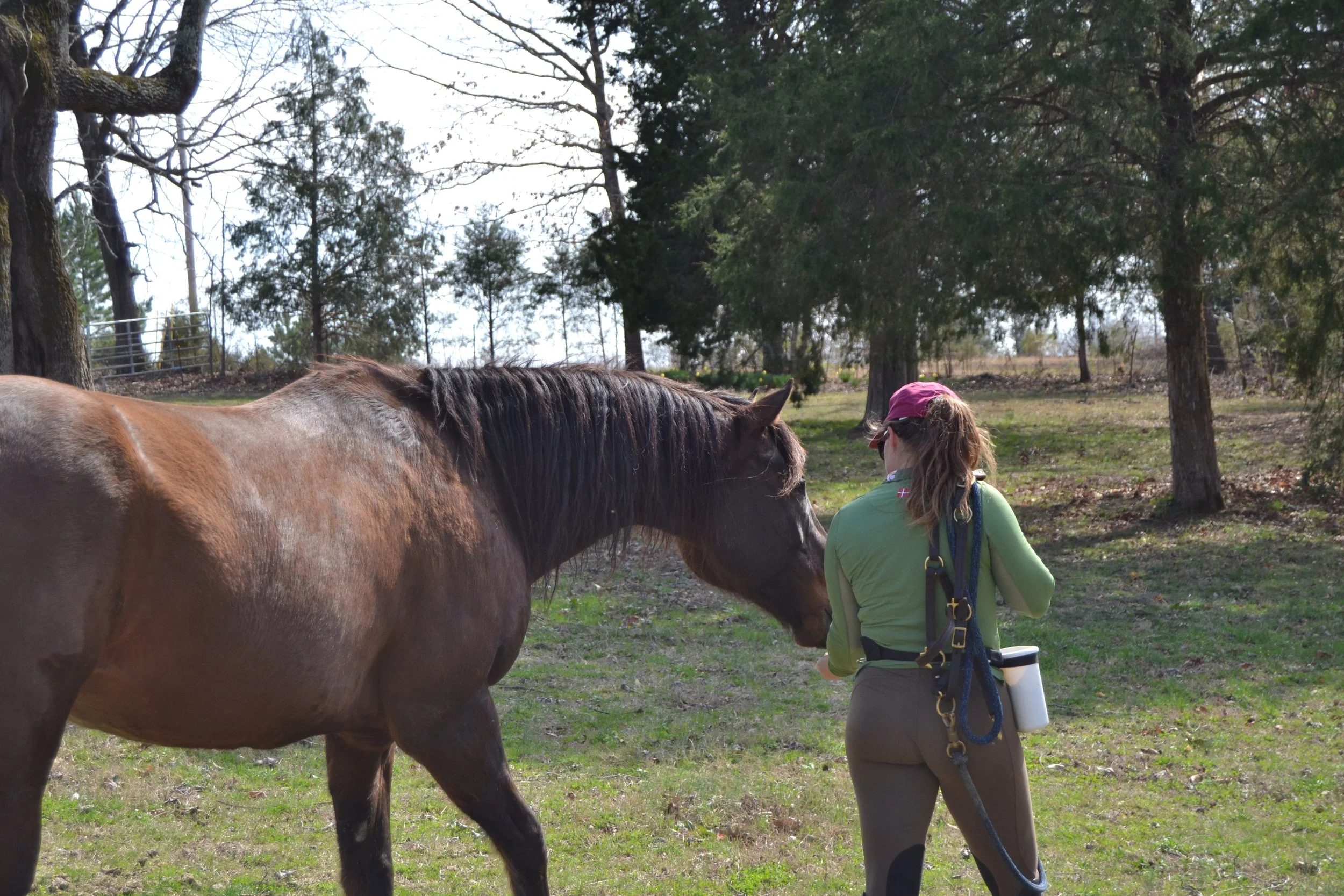Show him who's boss?
Somewhere along the way, the idea of “leadership” got tangled up with “being the boss.”
In the human world, we’ve seen it in workplaces, politics, and even family dynamics - the belief that to lead, you have to control, out-muscle, or dominate others.
The same belief crept into horsemanship. For years, “being a good leader” around horses was often equated with “show them who’s boss” or “make them respect you.” But dominance and leadership are not the same thing—and confusing the two can damage trust and connection.
True leadership isn’t about overpowering. It’s about creating an environment where those you lead - human or horse - feel safe, understood, and willing to follow.
Think about the leaders you’ve admired in your own life. Chances are, they weren’t the loudest or most forceful people in the room. They earned your trust by:
Listening
Communicating clearly
Being consistent and fair
Supporting you through challenges
Inspiring confidence, not fear
Horses respond to this kind of leadership, too. In the wild, herd leaders don’t constantly push others around; they guide movement, notice danger, and create calm through presence and reliability.
When we apply that to our work with horses, whether in training, rehab, or everyday handling, it means:
Using clear, consistent cues
Rewarding desired responses
Giving the horse time to process and respond
Reading their feedback and adjusting accordingly
Building a history of positive interactions, so following your guidance feels safe and rewarding
A horse who chooses to follow you because you’ve built trust will be more willing, relaxed, and confident than one who follows out of fear of what will happen if they don’t. And just like in the human world, relationships built on trust have more staying power than those built on control.
Leadership without dominance isn’t soft or wishy-washy: it’s strong, steady, and grounded in respect. It requires patience, empathy, and the courage to let go of control in favor of connection.
In both our human relationships and our horsemanship, the real mark of leadership is not how much power you can wield, but how much trust you can inspire.

